Andrey Babitsky: ''I would ask Mr. Putin whether he still considers me as a traitor''
The transformation of one of the most famous journalists in Russia: from a media manager of Radio Svoboda to a ‘’guardian’’ from the Russian World
Why should Donald Trump tame Radio Svoboda? What is ''the Russian World'' in Donbas? Whether Vladimir Putin should run for another presidential term? How is Igor Sechin destroying the Russian media? A well-known Russian journalist Andrey Babitsky, who has worked in ''trouble spots'' during the First and Second Chechen Wars and who 3 years ago moved to the Donbass, answered these and other questions of Realnoe Vremya.
''Raving-mad'' Radio Svoboda
Let's talk about Radio Svoboda. Out attention was drawn to your post on Facebook about ''elimination of Radio Svoboda''. Could you tell us why you call this press ''lost in darkness and senselessness'' and how realistic is it to make them friends with Putin?
I would like to note that this post is imbued with irony, it's not very serious — in the very beginning it says that ''Trump personally will appoint me as the head of the liquidation commission''. It is clear that such prospect is absolutely imaginary. It is impossible to make this office friends with Putin because it was originally developed as a platform for ruthless criticism of Russia (well, at first, the Soviet Union, now Russia). It seems to me that this corporation is fundamentally designed so that it is impossible to do any changes there. In fact, they selected human resource to do a propaganda warfare in the former Soviet Union republics.
Why, in fact, I wrote this post: I think that if Trump tries to normalize relations with Russia somehow, to change the viewpoint on the events in the former Soviet Union republics, of course, he will have to adjust the information policy of the United States — the existence of such monster of ideological struggle as Radio Svoboda, in the conditions of the globalization of ties and contacts, will look as anachronism, as an absolute nonsense. Especially since last two-plus years after the beginning of the Ukrainian crisis, Radio Svoboda has begun to receive additional funding and it has toughened its position – it has become a much more aggressive propaganda tool. Today it is difficult to call it a journalistic organization – it is the organization of constant, increasingly aggressive discredit of Russia, it uses the toughest means of propaganda. And I think Trump will have to deal with this organization, that is to say, to put a muzzle, to calm this aggression turning into a tantrum. Maybe it will come to a liquidation commission — then I would gladly accept the post of its chairperson.
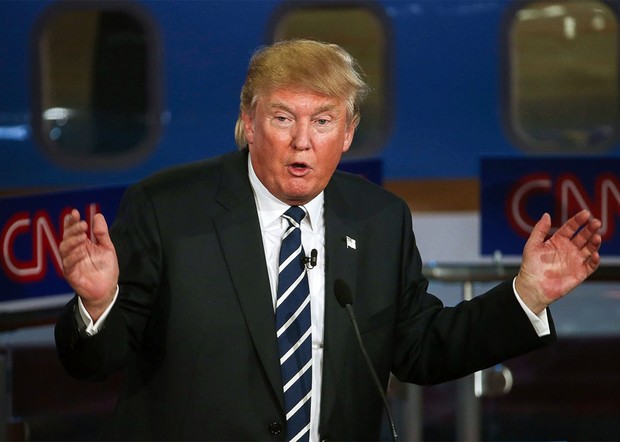
''If Trump tries to normalise relations with Russia somehow, to change the viewpoint on the events in the former Soviet Union republics, of course, he will have to adjust the information policy of the United States.'' Photo: tjournal.ru
As for to be friends, in fact, they should not do that. It is not a business of a journalist to be friends with Putin or with someone else. It was a sarcastic device. One just should get in order this absolutely lost mind organisation, to restore sobriety in the view. It is ok that Svoboda is more critical about what is happening in Russia, but they should not act like a violent madman of a psychiatric hospital.
You have worked for Radio Svoboda since 1989, could you tell us how Radio has changed for all these years, what stages did this project have?
After the end of the Cold War, after the collapse of the USSR and a little during the Perestroika period, Svoboda began to lose its editorial policy because it was focused exclusively on the Cold War, it was an instrument of it. And when the confrontation period ended, it wasn't clear what to do next. For 20 years, the editorial board was a completely amorphous structure, in which I, for example, felt very comfortable: there is no freer journalistic organisation than Svoboda of the period. I had some sort of rights-based motivation, it was comfortable and completely free — no limits on my actions. I remember Svoboda as a very colourful inflorescence of the variety of views: socialist, religious, and many others.
Svoboda changed 3 years ago when the Ukrainian conflict began, and it, as a touchstone, separated people on the different parties of people who previously could cooperate and work side by side. It also happened to the Russian society, where Ukraine separated people on different sides, liberal and patriotic communities, although before they could find a common language on a number of issues.
Now Svoboda is a harsh propaganda, it absolutely does not hesitate to spread some false facts, to rely on fake, misinformation. It has strengthened the evaluativity to the detriment of journalism. Until a certain period of time, it had been a quite acceptable place of work. This radio station won't be interesting for people who retain the love for Russia, desire to feel themselves citizens of this country.
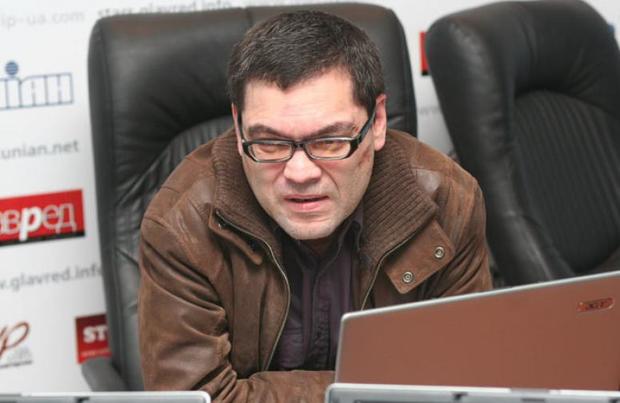
''As for to be friends, in fact, they should not do that. It is not a business of a journalist to be friends with Putin or with someone else.'' Photo: nohchipress.info
The problem of the Tatar-Bashkir editorial board
Mr Babitsky, have your paths crossed with the Tatar-Bashkir editorial office? A few years ago they closed the office in Kazan, dismissed the editorial board. Do you know what the reason is?
I don't know, but I remember that there was some kind of conflict. <…>
Actually, I think that all these national services are suffering for two reasons: because of lack of professionalism, because the staff was mostly formed at the beginning of the 1990s, they recruited people, in my opinion, not very skilful. The second point is that virtually all national services stem from national rather than democratic ideas, which bind their hands and foot. In fact, this nationalism of the 1990s in the national republics and autonomies have been overcome to a significant extent, and it has been formed a new brand ideology: judging by the recent statements of the president of Russia, it is ''the ideology of the Russian nation." But they continue to live in last century – it is the doctrine of the American containment, developed in the 1950s to support oppressed peoples, and enshrined in the foundation of information policy of Radio Svoboda during the Cold War. These engines still continue to turn the flywheel of the corporation.
It's amazing how ancient and outdated this structure is. This nationalist ideology, taken by the republics, autonomies, played the role of a huge mine that undermined the country, which led to a number of bloody clashes. And we see to what tragedy this policy led, judging by the crisis in Ukraine.
About Sechin and freedom of expression in Russia
Sechin sued several business media: in your opinion, what is it — a normal practice of the protection of privacy or a manifestation of the power of éminence grise?
To be honest, I don't know, but I incline to the view that Sechin in this situation, first, is destroying the media, whom he sued, and second, I really don't like a process of concealing of some kind of information of public interest about the life of the officials. I would think that it is absolutely worthless and, on the contrary, it is necessary to promote greater transparency.
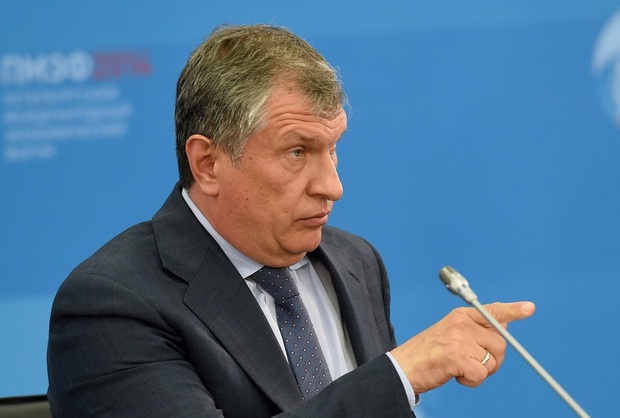
''I incline to the view that Sechin in this situation, first, is destroying the media, whom he sued, and second, I really don't like the process of concealing of some kind of information of public interest about the life of the officials.'' Photo: nvdaily.ru
What Russian media, in your opinion, are an example of objectivity today? Or the media can not be objective a priori, as it always reflects the interests of the founding shareholders?
The media cannot be objective a priori because there is always some kind of editorial position however the journalists can be quite free. For example, I have been published in several network editions, and there has not been a single time that my text was somehow adjusted or I was offered in advance any particular point of view on some important things. It is the total practice.
I have been working here (in the Donbass — editor's note) for almost three years. During this time, I had a strange Crimean editor who tried to correct my texts, but mostly not for political reasons but for aesthetic — he wanted something to add for beauty reasons. But in general, I have always felt absolutely free. <…>
I think today Russia has more freedom of expression and the boundaries are much wider than in most parts of the post-Soviet space. In this respect, Russia has moved a little further than some of the so-called young democracies.
The Russian World in the Donbass
Mr Babitsky, the last few years you have lived in the Donbass: could you tell us how people are living here, what is the political life and, after all, what is the ''Russian World''? By the way, do you use this euphemism?
Yes, I do. The Russian World — it is the values with which people live who consider themselves Russian. The people here have arisen to protect these values when it became clear that they are under serious threat. Actually, Donbas for 20 years has been trying to get along with Ukraine and all the time crowded, giving each section for the sake of peace.
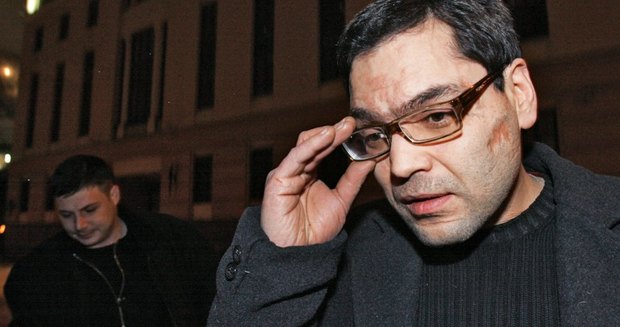
About the Donbass: ''People here are living not very good: there are miserable wages, miserable pensions, but somehow they survive, because, in general, the decision to defend their interests although was spontaneous but quite conscious.'' Photo: Pavel Smertin (kommersant.ru)
It is the values of the state, it is the language that is not simply a mean of communication but a codifier of values, a huge system of compressed meanings, which grows in a person and shapes them as a person. For the language, for the state, for their friends — here is the Russian World.
People here are living not very good: there are miserable wages, miserable pensions, but somehow they survive, because, in general, the decision to defend their interests although was spontaneous but quite conscious. That is, it was clear that being drawn into a war you can't get some rosy prospects.
Russia supports this not very convenient for life order. The budget of the Donbass is formed mainly from Russia, pensions and salaries are Russian money. Russia supports the defence of the Donbass, helps with arms, ammunition, trains, manages armed groups in the area. This is an extremely important support. Without it, of course, there would not have been anything, and, in my opinion, the Donbass couldn't handle by itself.
Three questions to Vladimir Putin
If you had a chance to ask Vladimir Putin three questions within an interview, what would you ask?
Well, with the first question I have no problem at all. I would ask when we will proceed to the elimination of the economic model that was founded under Boris Yeltsin and that has a disastrous effect on Russia today. This is the libertarian model that assumes the absolute value of benefits and which is opposed to the traditional Russian values: compassion, care, companionship. The second question I would ask, perhaps, whether he is going to run for another presidential term…
Well, the third one – I would ask whether he still considers me as a traitor. That way he called me in an interview with Natalya Gevorkyan, and if yes, I would try to dissuade him, as I have recently has done with Ramzan.
Russian politicians I have recently met with is Ramzan Kadyrov.
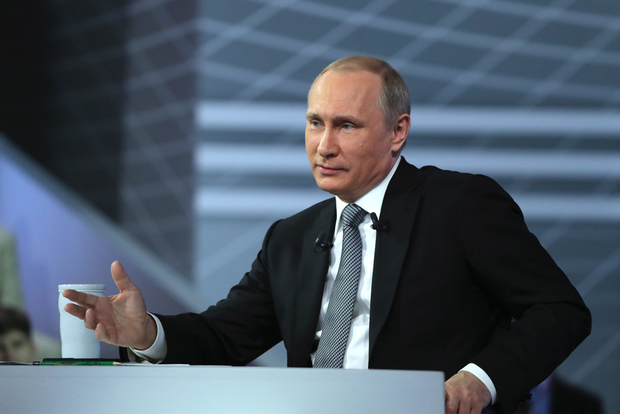
''I would ask when we will proceed to the elimination of the economic model that was founded under Boris Yeltsin and that has a disastrous effect on Russia today.'' Photo: moskva-putinu.ru
What was the reason of the meeting?
It was the project at Life: we visited the places where once there was fighting, and I saw the restored Chechnya in the flesh. Impressions are good, but not because of the restored Chechnya, although it also cannot but gladden. A good impression was due to the fact that all the fears that the Chechens would develop the political situation unfavourable for Russia have not justified, and they will not stick a knife in the back. The Chechens feel themselves Russian citizens and much more inspired by this than people in other regions of Russia.